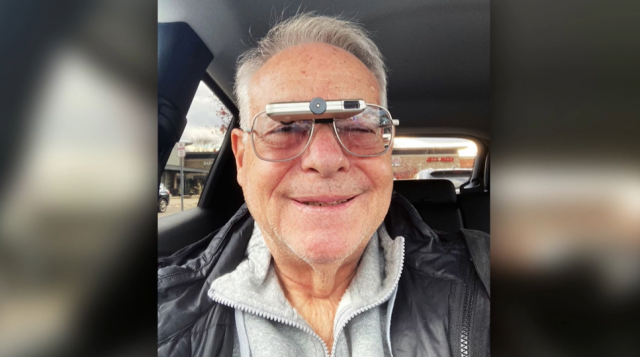Henry A Greene, OD, FAAO
Dr. Greene is the co-founder and president of Ocutech, Inc.
 After fears about cancer, individuals may worry most about becoming blind. The loss of vision creates the anxieties of being lost in space, feeling isolated, and with challenges to independence and an increased reliance on others for so much of one’s daily life. Some concerns about loss of vision may be exaggerated, as individuals born totally without vision, can maintain high levels of independence and life satisfaction. And, there is a remarkable and increasing range of low vision aids, both optical, non-optical, and electronic that allow us to enhance vision for those with low vision, as well as for those with very little or no visual function.
After fears about cancer, individuals may worry most about becoming blind. The loss of vision creates the anxieties of being lost in space, feeling isolated, and with challenges to independence and an increased reliance on others for so much of one’s daily life. Some concerns about loss of vision may be exaggerated, as individuals born totally without vision, can maintain high levels of independence and life satisfaction. And, there is a remarkable and increasing range of low vision aids, both optical, non-optical, and electronic that allow us to enhance vision for those with low vision, as well as for those with very little or no visual function.
Low Vision Aids
When one is diagnosed with a visual disorder that will affect vision, one understandably hopes first for a treatment and cure, not for devices to assist them to see better. However, ultimately as permanent vision loss becomes a reality, we need to be ready to explore support options to enhance visual function. With the increasing success of modern medical management of eye diseases, visual impairment is often no longer as severe as it had once been, and along with the continuing advancement in low vision aid technology, the benefit of low vision aids may be more valuable and effective than ever before.
A frequent comment expressed by individuals who’ve lost vision and who have discovered low vision aids and the experts who prescribe them is “Why has no one told me about this? Why have I had to wait so long?”
Specialists
Individuals with a visual impairment must understand that they need two eye doctors to support their needs—their medical eye doctor to manage the eye disorder, and their low vision eye doctor to help maximize their remaining vision. One specialist does not replace the other. In many eyecare practices, in universities, medical centers, the VA Medical Centers, agencies for the visually impaired and in schools and colleges of optometry, these two specialties along with therapists work in collaboration to help maximize the visual independence of their patients. In fact, recently, the American Academy of Ophthalmology has announced that low vision services and the provision of low vision aids must now be part of the standard of care for visually impaired individuals. https://www.aao.org/low-vision-and-vision-rehab
So, if a referral for a low vision assessment is not offered, it is important for you to request one as part of your eyecare treatment. Unfortunately, in today’s healthcare environment, where professionals are rushed, these referrals may not be considered, so, be an advocate for yourself, and request a low vision referral.
As many visually impaired individuals have expressed, “Low vision care and my low vision aids have changed my life!”
Additional reading:
https://www.aao.org/eyenet/article/alert-your-low-vision-patients-to-assistive-option-2